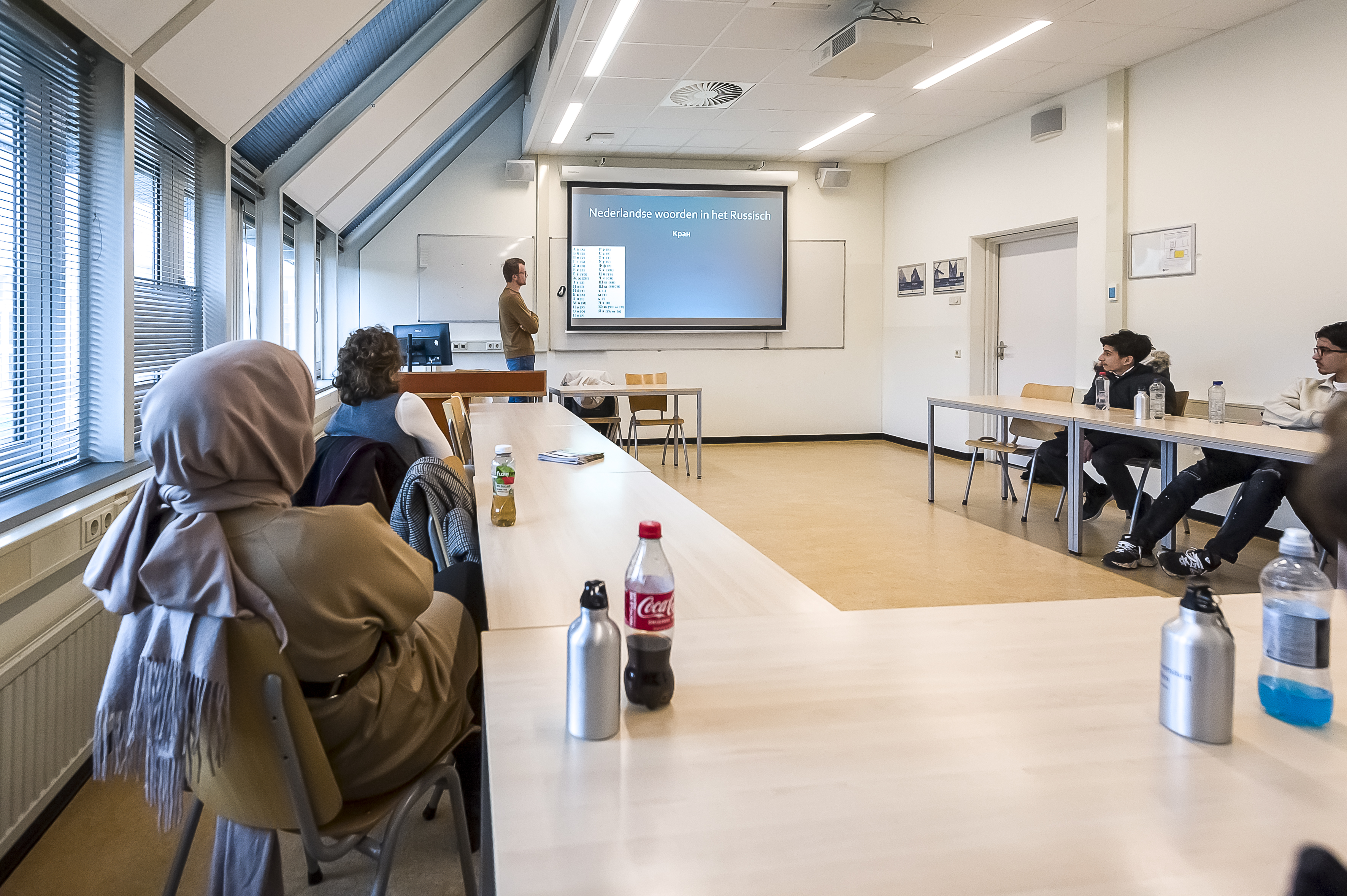
Choose a Language! Afternoon: ‘Great that it's more than learning words’
The lecture halls in the Lipsius were full of curious secondary school students in January. During a special profile selection afternoon, they were introduced to the faculty and language studies. ‘I had no idea that Hebrew and Arabic were similar.’
‘It's really big here,’ says Tijne, as she returns to the Lipsius after a tour of the campus. 'Together with her friends, she is taking part in the Choose a Language! afternoon, where, in addition to a tour, she can attend two lectures and have a speed date with language students. ‘In French, we talked about the origin of fairy tales,’ she says. 'I really liked that cultural angle. At school, we talk a lot more about grammar and words.'
For many teenagers, halfway through secondary school, it is still unclear what studies there are and what options a language study offers. The Choose a Language! afternoon was created to raise their enthusiasm about language and cultural studies at an early stage.
‘You notice that they have very different questions from slightly older students,’ says student Lena, who showed Tijne's group around. 'I also sometimes do tours with 5 or 6-year students. They want to know all kinds of things about my studies. These students find it especially interesting to have the chance to visit the university and to see all the possibilities it offers.'
Different from expected
For pupil Amana, this approach works well. 'Being here really motivates me to keep working hard. Not that they put you under pressure, but when you see all those people studying here, you do think: I want that too! I’ve also learnt all kinds of interesting new things. That there are seven thousand languages in the world, for example. And what code switching is.'
Yman is also impressed by the lectures. ‘I thought languages only taught you words, but apparently you also go into how they are created,’ he says enthusiastically over a soft drink in the break. 'I just had Arabic and Hebrew. The teacher gave us two words and explained that although they are pronounced differently, they are actually the same. I had really never thought that languages could be related in that way.'



